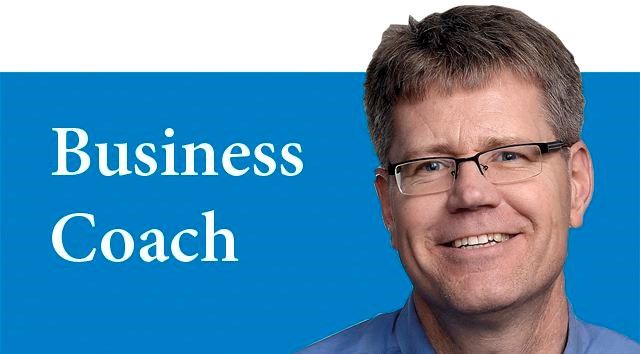It was an especially nice Irish day, which means it wasn't raining.
Emily, Isabel and Aisling had just been dropped off by their uncle at a train station in the middle of the country. The girls mounted the steps to the train station and proceeded to the ticket counter.
Putting their euros on the counter to buy the tickets they needed to get home, they realized that they were 10 Euros short. Panic ensued, as they had no way to reach their uncle.
How were they going to catch the train that was coming in 30 minutes without enough money to buy the tickets? Should one of the girls be left behind? Should they just sneak on the train and hope that no one checked for tickets? Or should they just beg for money?
In business too, panic can ensue when we become short of money. This week I was coaching a business owner who had put her lifesavings into her enterprise, and then found that it wasn't working for her. Her train had essentially left the station without her and had taken all her customers. She was starting to panic and asked if I could help her.
Having been in a similar situation in 1999 after opening a new business where things had not gone the way I was expecting, I thought I could help. I also had experienced the stress that happens when bank managers deny you additional loans to bridge you over.
Panic builds up when you realize you can't pay your staff, and when you don't have any credit left with your suppliers for the products you need to fill your shelves. I knew that she would have to act quickly and decisively.
They say that desperate times call for desperate measures. In the case of my client we brainstormed all the possible solutions that would generate cash for her business.
We talked about the fact that the first possible option to every problem is always do nothing. Doing nothing in her case was not a viable option, my client would have to declare bankruptcy if she sat back and continued to do things the way she had been doing them. She had to change her strategy.
A study by Napoleon Hill of several thousand business owners found that leaders who could make quick smart decisions in times of difficulty and follow through with those plans, were significantly more successful than business owners who waffled when it came to making important decisions about the future of their enterprises. When we are faced with difficulty we need to look at all our options and pick the one that has the best chance of success. Then we must take steps to implement that plan.
The problem for many of us when faced with difficult or life changing decisions is that we freeze. We know that we should take action, but we are scared of the possible consequences of making a change.
It is always easier in the short term to continue doing what we are familiar with. We prefer to walk the easy road instead of facing our fears head on and making the changes we know will be life giving in the long run.
Emily, Isabel and Aisling had a tough choice to make. As teenagers they didn't have the life experience that you and I have had. They were scared by their options, but had to do something otherwise their train would leave the station without them.
Facing their fears they started begging for money. They went from person to person in the station asking for coins that would help them pay for their tickets so one of them wouldn't be left behind. They told me that they were embarrassed by what they had to do, but they didn't see any other option. Luckily for them, the Irish are a generous bunch and in a few short minutes they had enough to buy their tickets for the train ride home.
It's going to take my client more than a few minutes to turn her situation around, but she told me she is committed to change. She left our meeting with 12 possible strategies that she could implement to help resolve her situation.
Of those strategies she chose one that seemed to make sense for her. It was not the strategy she imagined for her business when she opened it. However, now, she is not frozen by indecision and is going to proceed with steps that will put that plan into action.
Dave Fuller, MBA, certified professional business coach, is the author of the book Profit Yourself Healthy. Is your current business
strategy working for you? Email [email protected].



